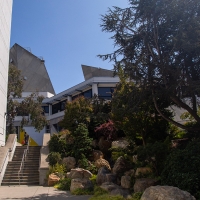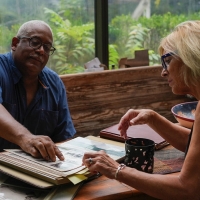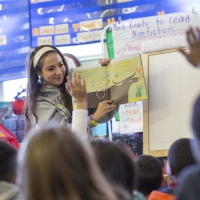University to honor three activists with careers in Hollywood, law, academia at 123rd Commencement
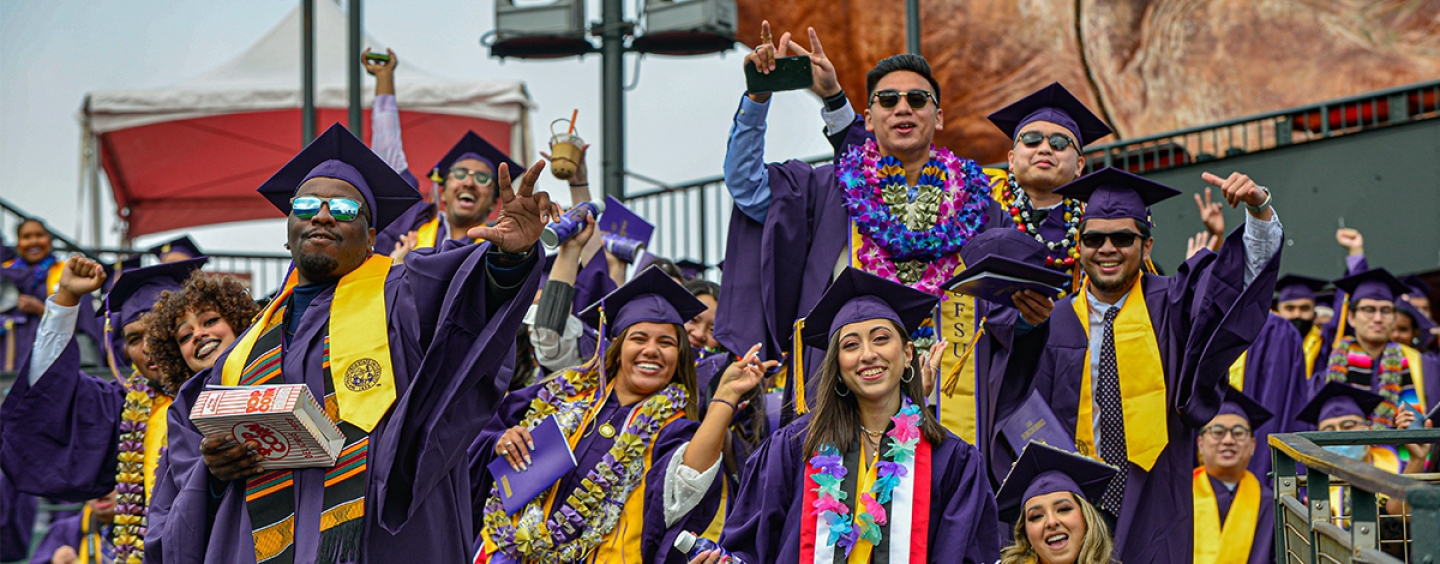
The honorary doctorates, recognizing Benjamin Bratt, Walter Riley and Joseph L. White, will be awarded at the University’s May 24 Commencement ceremony
San Francisco State University will award three honorary doctorate degrees at its 123rd Commencement ceremony on Friday, May 24, 2024. This year’s honorees are actor and activist Benjamin Bratt, attorney and civil rights activist Walter Riley and the late psychologist, activist and educator Joseph L. White (A.B., ’54; M.S., ’58). White passed away in 2017, so accepting on his behalf will be his daughter Lori S. White. She, Bratt and Riley will address the more than 7,300 students receiving their degrees as well as their more than 30,000 guests.
Doors at Oracle Park open at 3:30 p.m. The graduate procession begins at 5:30 p.m., with Commencement starting at 6:30 p.m. Fireworks will close out the event at about 9:30 p.m.
Live updates and photos from the ceremony will be posted to the University’s Twitter, Instagram and Facebook accounts. Graduates and guests can tag their Commencement posts on social media using the hashtag #SFSU2024.
Commencement information is available via the SF State mobile app. Once you’ve downloaded the SF State mobile app, visit “SF State’s 2024 Commencement Ceremony, See More Ceremony Info.” Be sure to opt into the University’s Commencement reminders by selecting “Manage Commencement Alerts” to receive push notifications. Details are also available on the Commencement website.
Honorary degree recipients
Benjamin Bratt
San Francisco native Benjamin Bratt is an award-winning actor and producer whose career in both television and film spans nearly 40 years. Raised by a strong, Indigenous single mother from Peru, his family was part of the American Indian Occupation of Alcatraz Island in 1969, an event which ignited the Red Power movement for self-determination. His mother Eldy Bratt raised her children part-time on the island over the 18-month occupation, a decision that inspired a lifetime of activism and commitment to community for his mother and her five children.
Bratt is a proud graduate of the San Francisco Unified School District. A Lowell High School alumnus, he credits his mentor Jack Anderson for his introduction to acting. He graduated from the University of California, Santa Barbara in 1986 with a BFA in Theatre and then pursued an MFA at the American Conservatory Theatre (ACT) in San Francisco. Plucked from starving student status during his second year to star in a TV pilot, he returned to ACT to receive his MFA and quickly established the Bratt Family Diversity Award, an annual scholarship given to the most promising students of color within the program.
Television audiences perhaps best recognize Bratt from his Emmy-nominated role as detective Rey Curtis on NBC's long-running drama “Law & Order,” or as Sofia Vergara’s ne’er-do-well ex-husband Javier on “Modern Family,” or currently on “Poker Face” alongside actress Natasha Lyonne.
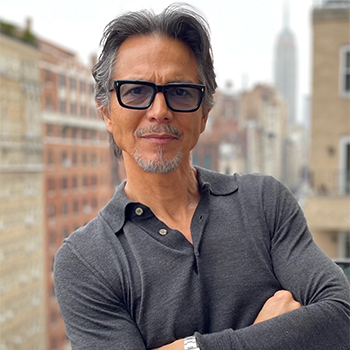
A veteran of nearly 30 films, Bratt’s varied career includes the critically acclaimed films “Piñero,” “Traffic,” “Blood In, Blood Out,” “Doctor Strange,” “The Infiltrator” and “Miss Congeniality,” among many others. Bratt also voiced the supervillain El Macho in “Despicable Me 2,” as well as the famed musician Ernesto de la Cruz in Pixar’s Academy Award-winning film “Coco,” which won for Best Animated Feature and Best Original Song.
Bratt is also the co-founder of 5 Stick Films, a production company aimed at making films intent on creating a social impact. Founded alongside partners Alpita Patel and his brother Peter Bratt, the team produced “La Mission.” The film, written and directed by Peter, won NAACP and GLAAD award nominations and two Imagen awards, including Best Picture and Best Actor. The team’s documentary feature “Dolores,” about the work of labor and civil rights leader Dolores Huerta, won a Peabody and the Audience Award at the San Francisco International Film Festival. The Emmy-nominated film aired on PBS in 2018.
Bratt honors his mother, recognizing that her activism, love and strength were instrumental in shaping his awareness around social justice work. Bratt remains tied to the Indigenous community of the San Francisco Bay Area and is a huge supporter of the Friendship House Village SF project. He remains a longtime supporter of the American Indian College Fund, Amazon Watch, the Natural Resources Defense Council, San Francisco’s BAYCAT, the Missional Cultural Center, Good Samaritan SRC and many other nonprofits.
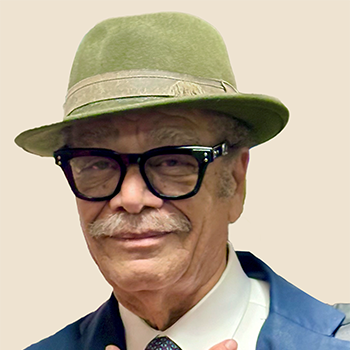
Walter Riley
Walter Riley is an Oakland lawyer whose practice areas include police misconduct, civil rights and criminal defense. Riley serves as a board member of the Coalition for Police Accountability and chair of Deep Medicine Circle.
He became an activist at a young age. He served as president of the young-adult chapter of the Durham, North Carolina, NAACP and organized voter registration drives, lunch counter sit-ins, job campaigns and campaigns to desegregate public accommodations, schools and businesses. He became a Congress for Racial Equality field secretary for North Carolina and the Southern region of the United States.
He moved to San Francisco in 1965 and attended San Francisco State College. He was active in the 1968 student strike at SF State, participating in the campaign for ethnic studies and the Black Student Union and serving as vice chair of Students for a Democratic Society. After leaving college in 1968, he led the organization of a rank-and-file Black caucus among San Francisco Muni bus drivers. He was active in the labor and anti-war movements, working with the Black Panther Party and other community groups.
He continues to work for social, political and economic justice for all people. Riley was the lead attorney for the “Black Friday 14,” #BlackLivesMatter protesters who disrupted Bay Area Rapid Transit service the day after Thanksgiving in 2014. He also represented other #BlackLivesMatters protesters, including those demonstrating against the police murder of George Floyd.
Riley received the California Black Lawyers Association President’s Award, National Lawyers Guild San Francisco Chapter Champion of Justice Award, National Lawyers Guild Law for the People Award and East Bay Sanctuary Covenant Award. He has been honored in the U.S. Congressional Record by Rep. Barbara Lee and in the California Assembly by Assemblywoman Jackie Goldberg. The Oakland City Council proclaimed April 27, 2013, as Walter Riley Day, and he received a Black Panther Commemoration Committee Award.
Joseph L. White (A.B., ’54; M.S., ’58)
Joseph L. White is a pioneering psychologist known to many as “the godfather of Black psychology.” He was also a trailblazer in ethnic studies and other programs that would serve students of color and low-income students for years to come. He was a teacher and an administrator at several universities, spending much of his career at the University of California, Irvine (UCI).
He moved to San Francisco after high school, earning bachelor’s and master’s degrees from San Francisco State College. In 1961, he became the first African American to earn a Ph.D. in Clinical Psychology from Michigan State University, making him one of only five African Americans in the nation to hold a doctorate in Psychology at that time.
White joined the Psychology Department at California State University of Long Beach, where he co-founded the Educational Opportunity Program (EOP). The program expanded statewide, providing supportive pathways for disadvantaged students to study at CSU campuses. Since its inception, EOP has helped more than 300,000 minority students achieve college degrees and go on to professional careers.
White returned to SF State in 1968 as a professor of Psychology and became a tireless ally to students of color. He was dean of Undergraduate Studies during the 1968 – 1969 student strike and helped launch the Black Studies Program (now the Africana Studies Department), the first of its kind at an American four-year college.
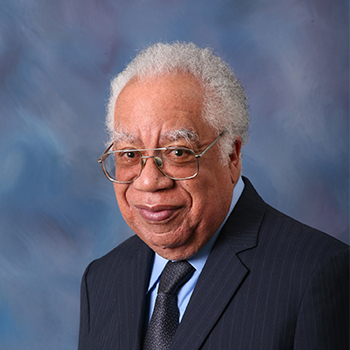
At the height of the civil rights movement, White emerged as a powerful voice for change, challenging psychologists to better understand the unique experiences of ethnic minorities. In 1968, he helped found the Association of Black Psychologists, and his seminal 1970 article in Ebony magazine, “Toward a Black Psychology,” introduced Black perspectives to mainstream psychology. His books include “The Psychology of Blacks: An African American Perspective” and “Black Man Emerging: Facing the Past and Seizing the Future in America.”
UCI recruited White successfully to teach in the Comparative Culture program and serve as director of the Black Studies Program. He also held appointments in the School of Social Sciences and the Department of Psychiatry & Human Behavior. He taught there for 25 years, inspiring and mentoring countless students.
He has been recognized many times for his work, including receiving a citation of Achievement in Psychology and Community Service from President Bill Clinton in 1994 and the Presidential Citation from the American Psychological Association in 2015. In 2008, he was honored as SF State’s Alumnus of the Year. He passed away in 2017 and was posthumously awarded SF State’s highest honor, the President’s Medal, in 2019.

